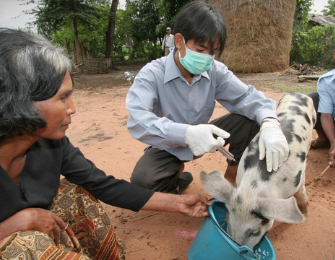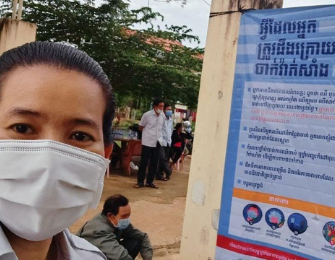The Indo-Pacific region’s health security system, or its ability to avoid and contain infectious disease threats with the potential to cause social and economic harms on a national, regional or global scale, has many weaknesses in both human and animal health. In the last 20 years approximately two-thirds of all new or re-occurring infectious diseases affecting people have originally come from animals. These types of diseases are called zoonoses.
The animal health system has far less human and financial investment and is therefore weaker. Accordingly, it is imperative that if we want to improve the whole health security system in the region, we also work on improving the animal health system.
The organisation responsible for setting international standards for animal health is the World Organisation for Animal Health (WOAH).
The Australia-WOAH One Health Partnership supports strengthening of the region's animal health sector through WOAH's Performance of Veterinary Services (PVS) Pathway Cycle. PVS Pathway is a program for independently assessing and providing targeted support to countries' animal health systems.
This program has been running worldwide for over 15 years. National governments can request PVS assessments or any number of the targeted support packages if they have already had a recent PVS assessment.
Targeted support can include support to revise animal health legislation and mentoring partnerships between a developing and a developed country’s animal health laboratories.
The Australia-WOAH One Health Partnership also has a focus on delivering National Bridging Workshops. These are a joint effort by the Quadripartite (FAO, UNEP, WHO and WOAH) to bring human and animal health counterparts together to identify priority areas where they can work together to improve the national health security system.
This can be in areas such as surveillance, diagnostics, information sharing and emergency disease response, particularly for zoonotic diseases such as bird flu and rabies but also for antimicrobial resistance and animal health.
Under this program, eligible countries in our region will have strengthened animal health systems and will implement new joint activities between human and animal health counterparts to strengthen their cooperation and health security system.




